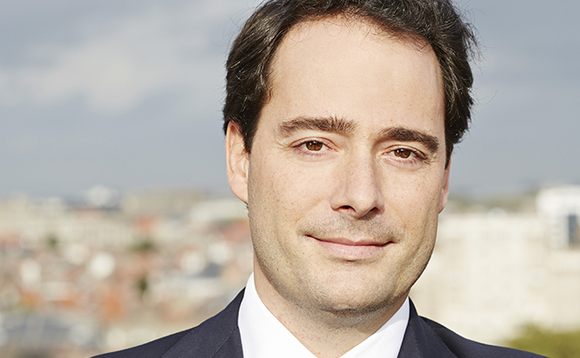
In Profile: Kartesia Advisor

As the alternative lending space becomes increasingly competitive, José Rojo speaks to Kartesia Advisor to find out how this lender is putting money to work through a blended strategy of primary and secondary deals in the lower-mid-market
Despite being formally founded in 2013, Kartesia Advisor can trace its roots back to January 2009, when the founders were hired by LBO France to head up a newly launched credit arm under the Altercap fund brand. "The idea emerged at ICG, where Bouvier and I had worked together," explains Jaime Prieto, managing director of Kartesia. "We identified an opportunity as we saw there were returns to be made via the acquisition of senior debt from private-equity-backed companies. LBO France granted us complete autonomy to launch the funds, invest, manage and divest assets."
Under the GP's wing, a €160m Altercap fund was set up in 2009 and was fully invested by the end of 2010. This was followed by the immediate launch of a successor vehicle, which hit its €200m hard-cap in 2012 and deployed most of its capital in the same year. By early 2013, Altercap's managers were preparing to add a third fund when the possibility of a spin-off was touted.
"We realised that purchasing debt in the secondary market over-relies on credit-seeking vendors. What made sense instead was a strategy bringing together primary and secondary financing," says Prieto. Familiar with the two routes from their days at ICG and LBO France, Bouvier, Prieto and Delamaire enlisted ICG's Damien Scaillierez in August 2013 and Kartesia was founded as an independent lender.
Once agreements were secured with LBO France to continue overseeing the day-to-day management of Altercap I and II, Kartesia launched its maiden fund Kartesia Credit Opportunity I (KCO I). After a €227m first close in September 2013, the vehicle raced to a €507m final close in March 2015, surpassing its €400m target and €500m hard-cap. Commitments were drawn from cornerstone investor Sienna Capital, the alternative investment arm of public holding Groupe Bruxelles Lambert; Sagard, the Desmarais family's private equity firm; and a large German pension fund, among other LPs.
"Although we have retained 80% of our previous investors, there has been a shift from high-net-worth individuals towards institutional LPs, which currently account for 80% of our backers," says Prieto.
Blended strategy
Having completed 15 transactions, the vehicle is now 40% invested and the firm expects to reach 60% by year-end. Kartesia puts cash to work by supplying debt for deals or acquiring debt packages from banks and other creditors. "Our dual nature gives us an edge over players that focus solely on primary deals, such as mezzanine funds," Prieto says.
According to Prieto, Kartesia's focus on companies valued in the €50-250m region and with a €5m+ EBITDA allows greater flexibility and relatively fewer competitors. "After the crisis, historical alternative lenders were forced to either grow big or disappear. Raising funds within the small- and mid-cap region can be surprisingly complex," he says.
These complexities are, namely, the need to track the right debt products in a space far more crowded than the large-cap segment. In Prieto's view, the key lies in obtaining differentiated information, which can only be achieved by a team close to target businesses. The on-site rationale is behind Kartesia's future plans to add offices in France, Spain and Germany to its existing ones in London, Brussels and Luxembourg.
Small-to-mid opportunity
The main advantage of targeting the small- to mid-cap space is the greater number of deals on offer. "Having a greater number of opportunities to choose from means we are more flexible, we can be far more selective when sourcing the credits which will yield the best returns," says Prieto. "Beyond any financial considerations, we also prefer situations where all actors involved – the private equity firm, the management team – are on the same page, seek the same goals."
Prieto stresses the importance of maintaining a constructive attitude when transacting in this space: "We have recently witnessed the arrival of aggressive, loan-to-own restructuring funds from the US that will push for a takeover when things look down. We would rather have all parties reach a mutually agreed solution, which helps boost credibility among private equity funds."
As liquid credit markets fuel the competition between traditional and alternative lenders, Kartesia argues the solution lies in finding areas that have been overlooked. "Broadly speaking, it's true both sides are offering more aggressive leverage and pricing terms in their race for a share of the market. But rather than competing against banks, what we try to do is fill in the gaps they leave behind, and prioritise those areas they have pulled back from for a number of reasons," says Prieto.
However, one strength that alternatives can openly boast is the ability to react quickly, says Prieto: "When we provide a private equity fund with the financing they need for a transaction within two weeks, we are effectively enabling them to acquire a company exactly when they want and avoid competition from other firms. Our decision-making structure is much more efficient."
As Kartesia's current fund moves towards full deployment, the firm plans to raise a larger fund next year. Although a target has not yet been set for KCO I's successor, Prieto hints at the €700m region.
The team

Bouvier's background in leveraged finance began at Credit Agricole CIB, where he worked from 2000 to 2005. He then joined ICG's office in France, where he worked in originating and executing debt and equity investments. In 2009, he left to set up Altercap, LBO France's credit arm alongside Prieto and Matthieu Delamaire.

Prior to founding Altercap and then Kartesia alongside the three other managing partners, Delamaire started out as an auditor for Deloitte and PwC, and went on to join Societe Generale's leveraged finance team between 2006-2009.

Prieto began his career at telecoms business Lucent Technologies. He joined McKinsey & Co in 2003 as a senior associate, advising both corporates and private equity houses in the M&A space in France and Spain. Prior to LBO France, he joined ICG as an investment executive in 2006 and helped set up the Minority Partners scheme.

Scaillierez's track record in leveraged finance dates back to 1992, when he joined Credit Agricole CIB. The investment bank first employed him as a credit analyst and then promoted him to director of acquisition finance. In 2000, he left for ICG, where he held roles including chief investment officer and chair of the global investment committee, and oversaw more than 20 mezzanine and equity transactions.
Portfolio by geography
1. France (32%) Notable deals include fast-food chain La Croissanterie, which was supplied with a senior facility in May 2014.
2. Spain (31%) Kartesia provided a €26m unitranche loan in support of HIG's takeover of Café & Té and Panaria in August 2014.
3. DACH (21%) Recently, the firm backed Ergon Capital Partners' acquisition of restaurant chain Sausalitos with a €27.5m unitranche loan.
4. Benelux (8%)
5. UK & Ireland (7%) "The intense competition currently ongoing in the country makes it a challenge for Kartesia to deliver a differentiated offer and returns are comparatively lower," says Prieto.
6. Other EU countries (1%) When questioned about regions such as the Nordic countries, Prieto points out highlights such as the Norwegian high-yield bond scene.
Latest News
Stonehage Fleming raises USD 130m for largest fund to date, eyes 2024 programme
Sponsor acquired the public software group in July 2017 via the same-year vintage Partners Group Global Value 2017
Stonehage Fleming raises USD 130m for largest fund to date, eyes 2024 programme
Czech Republic-headquartered family office is targeting DACH and CEE region deals
Stonehage Fleming raises USD 130m for largest fund to date, eyes 2024 programme
Ex-Rocket Internet leader Bettina Curtze joins Swiss VC firm as partner and CFO
Stonehage Fleming raises USD 130m for largest fund to date, eyes 2024 programme
Estonia-registered VC could bolster LP base with fresh capital from funds-of-funds or pension funds









